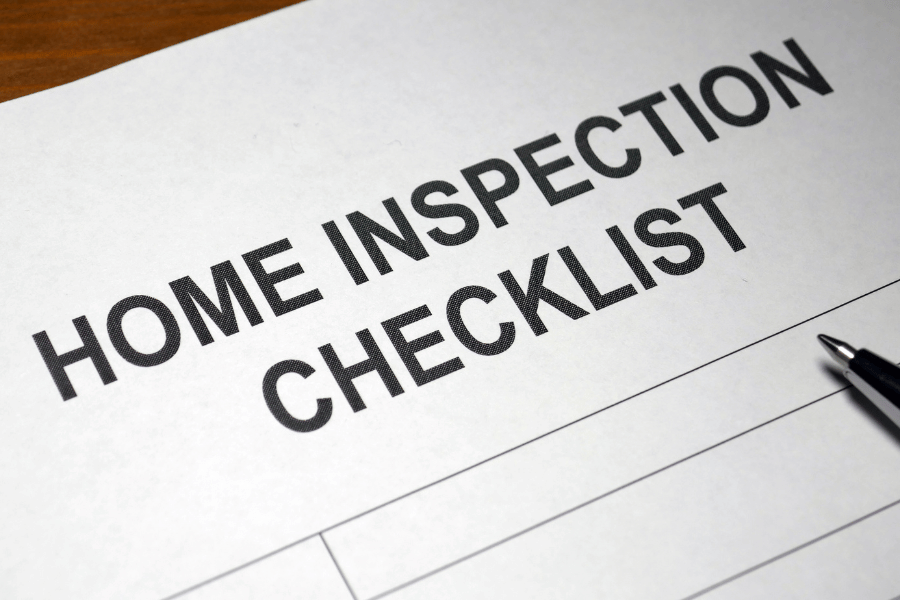7 Takeaways: Due Diligence Fee and Earnest Money in Real Estate

Understanding Due Diligence and Earnest Money in North Carolina Real Estate
Here is what you need to know about Due Diligence and Earnest Money in Real Estate!
When you go under contract on a home in North Carolina, you will encounter terms like Due Diligence and Earnest Money. It's important to note that real estate contracts and laws change depending on your state. Whether you are a first-time home buyer or buying again, you will want to know how Due Diligence and Earnest Money impact you as a buyer or seller in North Carolina.
The following article will discuss Due Diligence, Due Diligence fees, and Earnest Money in North Carolina Real Estate. We help folks looking to buy or sell homes in the Raleigh area, and many of our articles are geared towards helping keep people informed so that you can have a successful real estate transaction.
If you or someone you know has started looking for a home, you have no doubt come across the terms Earnest Money and Due Diligence fees. Here, we take a closer look at what due diligence and earnest money fees are, their importance in the offer process, and what steps you can take to prepare to pay them financially.
It should be noted that only some states use due diligence fees in real estate transactions, so it is essential to consult with your real estate agent so they may educate you on the legal implications of a housing contract.
Chapters
1. Due Diligence: What Is it?
Introduced in 2011, due diligence money is a fee paid directly to the seller in a real estate transaction. It is immediately owing, though sometimes it is paid a few hours after the execution of the contract. This is part of what happens when you go under contract on a home.
This is not a set fee but rather one that is decided upon with guidance from your real estate agent based on your readily available funds. Typically, the amount ranges anywhere from three to five percent of the offer price of a home.
Sometimes, you may hear someone refer to this fee as "good faith" money, as it is a fee that you are giving the buyer directly to let them know that you are serious about buying the property. It can also be considered a down payment towards the home's purchase price, as the due diligence money will be credited back to the buyer at closing.
Due diligence fees are most frequently paid through a wire transfer or personal check. Your real estate agent will be the one to pick up the tab from you and deliver it to the listing agent, who will then pass it along to the seller.
2. Due Diligence Fees Are Guaranteed Money For The Seller
It is important to note that due diligence fees are non-refundable, assuming the seller follows through with their promises in the contract. Buyers will forfeit this money if they decide to terminate the agreement.
Once given to the seller, the money is deposited and will not be returned. If a buyer refuses to pay the due diligence fee because they no longer want to buy the home, the seller can seek legal action against them to collect the funds.
If a seller cannot hold up their end of the contract, the money can be refunded to the buyer, but this is highly uncommon. When this situation does occur, it is usually due to extenuating circumstances, such as the property being destroyed before closing or a title issue being revealed that cannot be resolved before closing.

3. Due Diligence Period
With the acceptance of your due diligence fee, you then enter into what is referred to as the due diligence period, where the house is officially taken off the market before closing. This amount of time agreed upon between the buyer and the seller typically ranges from fourteen to twenty-one days.
During this time, there are many things that a buyer needs to accomplish, such as home inspections, appraisals, securing their financing, and title searches. Due diligence fees pay for the time it takes to complete these tasks. Let's take a closer look at each one of these processes.
4. Home Inspections
Why do real estate agents recommend getting home inspections during the due diligence period? This is so that you know precisely what issues must be fixed upon moving into your new home. The standard components of a home inspection are as follows:
-
Mold - A fungus that damages your home can cause long-term health conditions.
-
Carbon monoxide - An odorless gas that, when inhaled, deprives your body of oxygen and can result in death.
-
Radon - A colorless, odorless gas usually found in the ground that can seep through your home's foundation, causing respiratory problems.
-
Structural Components like the condition of the home's foundation, roof, and HVAC system
-
Plumbing and electrical systems
-
To reveal any illegal additions or installments in the home

Following an inspection, you may decide not to proceed with closing on the house due to the number of things that need to be fixed, which you certainly have the right to do, but it will be at the cost of your due diligence fee. Again, it is non-refundable once a contract is formed between you and the seller.
Inspections are an expense that the buyer pays. If you have an inspector you are familiar with, you may choose to work with them. If you are still determining who to complete your home inspection with, your realtor can guide you through choosing a reliable inspector. You can be there during your inspection, but it won't be required. This is a task that your realtor can be current for on your behalf.

5. Appraisals
The biggest reason that an appraisal is performed during the due diligence period is to determine whether or not the home's contract price is appropriate, given the home's features, location, and overall condition. An appraisal is an essential part of the home buying process for the buyer, as lenders will not lend money to you if the appraised value comes back lower than the loan amount.
As a buyer, you want the home's appraised value to be right at your offer price or higher so that you can continue with the closing process. The home appraisal is an essential step towards closing; pay attention to its importance in securing finance whether you have written an offer or intend to make an offer soon.
6. Title Searches
What is a title search, and how does it work? Typically performed by a licensed real estate attorney, a title search is a search for documents on a specific property, namely, who has legal ownership of the home, so that we know exactly who needs to transfer the title of the house to you at closing.
A title search can also provide the following information:
-
Deed Restrictions limit the reasons for which the property can be used, what types of construction the city allows on a property, the number of vehicles permitted at home, etc.
-
Any existing easements on the property legally allow another party to use someone else's property. Examples include a utility company being allowed to use part of the land to run power lines.
-
Liens on the property, such as unpaid debts.
Title searches are included in closing costs paid by the buyer.
7. Securing Funding During Due Diligence
It is essential to use the time bought for you during the due diligence period to consult with your lender to ensure that the period is enough for them to provide you with funding following the home appraisal. Depending on the financing you receive for your home, more time may be needed to secure that financing.
It is also a good idea to consult with your lender on whether or not you should proceed with the transaction or terminate it. In addition to your due diligence and earnest money fees, there will always be closing costs for which you, the buyer, will be responsible.
Examples include the appraisal and inspection fees, any HOA fees associated with the home, property taxes, and insurance premiums due at closing. Your lender can give you an idea of the funds you need readily available at closing time.
8. Earnest Money
Earnest money is similar to due diligence in that it is another fund that you are paying the seller to show your commitment towards buying their home. It can also be considered "good faith" money to be credited to you when you close the house.
There are some critical differences between the two fees: earnest money is refundable if you withdraw from the contract during the due diligence period. Earnest money is not required in an offer to purchase, but when offered, it will usually fluctuate anywhere from one to three percent of the offer price for a home.
Earnest money is usually held within the trust account of the escrow agent, usually a licensed attorney, named in the contract until the settlement date. Much like due diligence, the earnest money is generally given as a wire transfer or personal check.
This money typically does not earn interest in the escrow account but can make it if both buyer and seller agree. It would be best to negotiate who earns that interest, and the details must be included in the purchase contract. This will require the use of an attorney to draw up the pieces.

9. Earnest Money Is Refundable, Sometimes
If you no longer wish to purchase the home before your due diligence period ends, you will receive a full refund of your earnest money. If you withdraw your offer after the due diligence period has passed, this is the only time the earnest money will not be refunded to you. It's important to note the difference, as the due diligence period is a critical timeframe.
10. Earnest Money and Due Diligence In Today's Market (2023)
As stated above, only some states use due diligence fees. Still, if you are buying a home in North Carolina, the importance of due diligence has increased exponentially within the past seven years. In contrast, the importance of earnest money has decreased. This is because they are offering higher amounts in due diligence to make an offer more competitive.
So why is due diligence more attractive to a seller than earnest money? Because that is guaranteed money for them. They more than likely will not back out of the sales contract, but even if the buyer does, they can sign the termination of the contract and put their home back on the market for the next buyer, all while still making a profit from due diligence.
Depending on what city and neighborhood you are considering moving to, there may be an exponential increase in the number of people looking to move there alongside you. You more than likely have heard that to make your offer more competitive than the offer from the person next to you. It is a good idea if you have those funds readily available. You will not lose the money if your offer is not accepted because no contract will have been executed.
If you do not have that extra money readily available, do not let that deter you from buying a home. Consult your real estate agent and discuss how much you can reasonably offer so you are spending only what you should.
11. How To Prepare for Due Diligence and Earnest Money
What is the biggest way you can prepare for due diligence and earnest money fees? Look at your finances. See exactly how much money you have readily available, i.e., how much money is liquid.
Have a very open and honest conversation with your real estate agent about that amount, look at how much you are pre-approved for, and then have them advise you on an amount you will likely need to pay for a competitive offer. Remember, you will only lose these funds if you withdraw from a contract.
Due Diligence and Earnest Money fees are down payments toward your dream home. Giving someone money upfront for a home may be intimidating, but the minute you receive your keys, it will all be worth it.

Final Thoughts on Due Diligence and Earnest Money
In short, due diligence and earnest money are fees you pay upfront when you enter a contract to buy a home from a seller. These funds tell them you are serious about your commitment to purchasing their home.
There are no set costs for these fees; they can be negotiated with the seller and are a topic you should discuss beforehand with your real estate agent during a buyer's consultation. Due diligence fees are non-refundable, so if you decide to back out of a contract for a home, that money will not be returned to you. It is guaranteed money for the seller.
Although not as widely used in the home-buying process in North Carolina, the earnest money is a fee that can be refunded to you if you back out of the contract before the end of the due diligence period. As long as you reach the closing day, these funds will be credited to you at settlement.
If you would like our help when buying or selling real estate in the Raleigh area, please reach out to us via the website or by call/text to our company number 919-249-8536.

Ryan Fitzgerald
Hi there! Nice to 'meet' you and thanks for visiting our Raleigh Real Estate Blog! My name is Ryan Fitzgerald, and I'm a REALTOR® in Raleigh-Durham, NC, the owner of Raleigh Realty. I work alongside some of the best Realtors in Raleigh. You can find more of my real estate content on Forbes, Wall Street Journal, U.S. News and more. Realtor Magazine named me a top 30 under 30 Realtor in the country (it was a long time ago haha). Any way, that's enough about me. I'd love to learn more about you if you'd like to connect with me on Facebook and Instagram or connect with our team at Raleigh Realty. Looking forward to connecting!
Related Blogs





